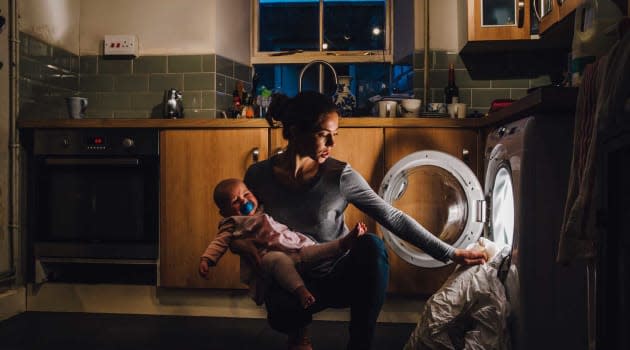More Than 50% of Renting Couples with Children Worry About Housing

The COVID-19 pandemic has caused a record-breaking number of job losses in the United States, with over 9.4 million jobs lost by the end of 2020. Between March and April 2020 alone, 22 million people lost their jobs — and only about half of them have gone back to work since then.
This has caused huge financial and mental repercussions for families living in rental housing, despite the eviction moratoriums passed by the federal government.
In their study "From Financial Crisis to Coronavirus: Rental Housing Vulnerability in a Decade of Economic Turmoil," the NHP Foundation (NHPF) found that, because of the pandemic, more than half of parents living in rental housing with school-age children spend at least a few hours every day worrying about their housing situation.
Additionally, more than one-third of parents surveyed spend "most of the day" worrying about their housing situation.
Housing worries weigh heavily on parents' mental health
The NHPF study revealed that 38% of parents spend most of their day worrying about how the pandemic has impacted their living situation. For many of those (28%) that participated in the survey, making rent was the biggest fear on their mind, topped only by a fear of contracting the coronavirus (41%).
Several studies have already looked at the mental health issues that the pandemic has caused college students and working professionals. However, this new report shows that there is also a connection between the stability of a person’s housing situation and their health.
Parental worries reflect bleak realities
Unfortunately, these parents’ worries are not unfounded. Half of the survey participants stated that their housing situation took a turn for the worse in 2020, while 56% of them reported a "somewhat to very negative financial impact" from the pandemic.
For 38% of these parents, this financial impact came from a reduction of their working hours. About a third (33%) of those surveyed reported a total loss of employment.
As a result, 34% of parents have missed rent payments — compared to 12% of those who reported missing rent anytime in the last decade. Many of the survey participants who reported missing rent payments owed between $1,000 and $4,999 at some point within the last decade.
The NHPF report also notes that many of those that participated in the survey also experienced similar housing troubles during the 2009 financial crisis.
"Whether workers have faced a decrease, or worse, a total loss of income during the COVID-19 pandemic, millions of these Americans are ready and willing to begin working again," said Alexander Alonso, the chief knowledge officer at the Society of Human Resource Managers.
"It’s imperative to focus recovery efforts on increasing job opportunities so these individuals can find productive work, improve their family’s financial situation and further contribute to overall economic recovery."
Methodology: For this report, the NHP Foundation surveyed 1,000 renters earning less than $75,000 a year. Half of the survey participants reported earnings of less than $30,000 a year.

 Yahoo Movies
Yahoo Movies 